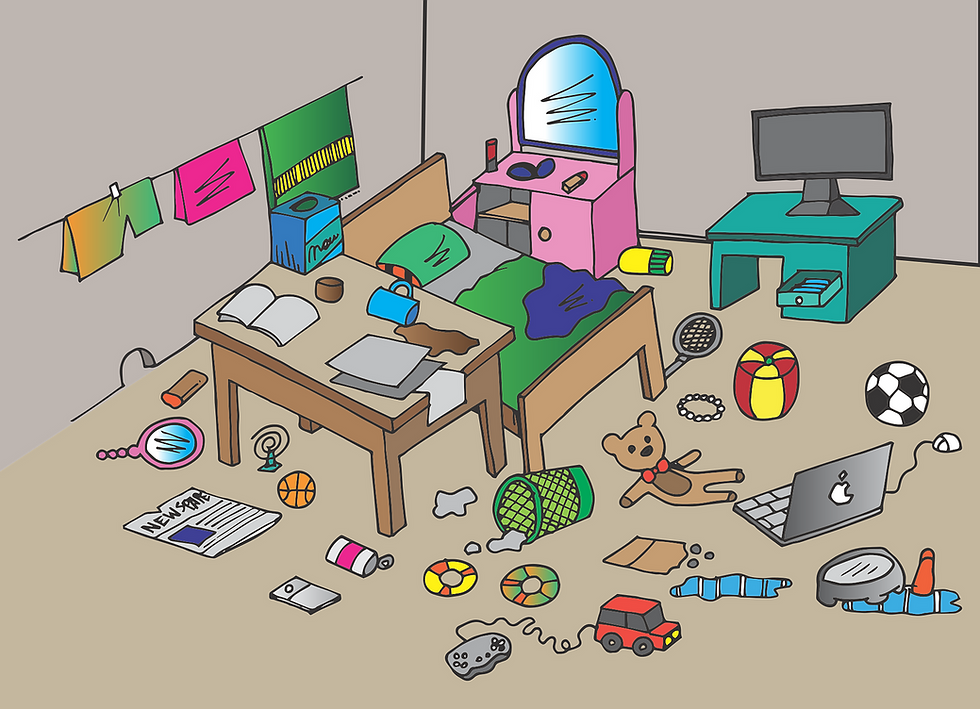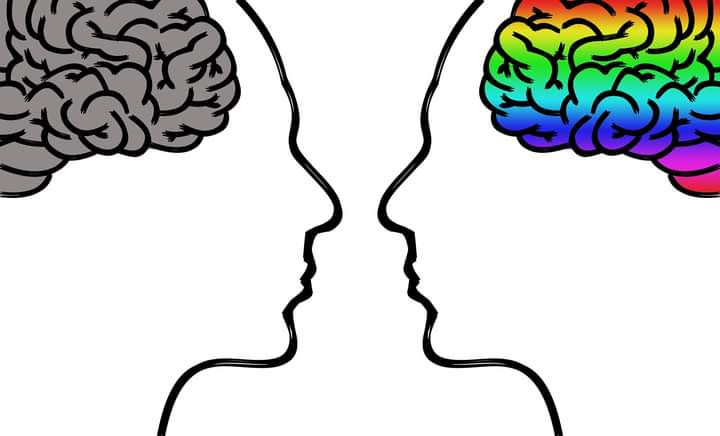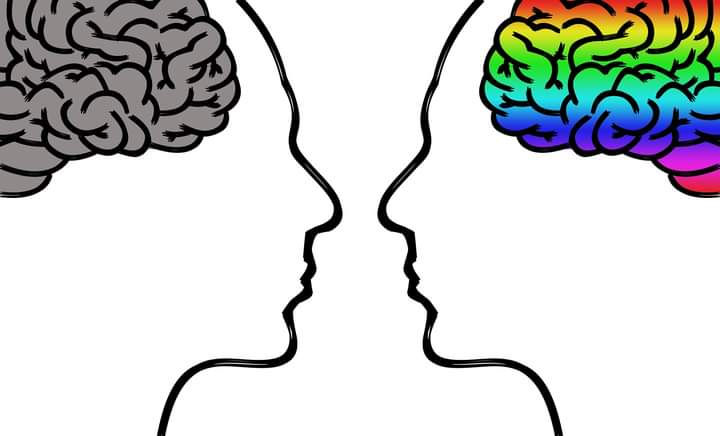Disorganization!
- Debora Wiseman
- 6 de dez. de 2022
- 4 min de leitura

Disorganization!
Caution: This disorder may be associated with mental disorder!
Many people who suffer from stress notice that when they are at the peak of this feeling, they let their homes become a labyrinth of mess and disorganization, with that feeling of being overwhelmed by daily responsibilities and dealing with other basic tasks seems like a big challenge. The problem is the accumulation of mess causing a "snowball".
Thus, disorganization begins to occupy an ever-increasing space in the mind. There is always a reminder of unfinished things, adding, in this situation, to confusion and forgetfulness, which are very common. And when remembered, they cause astonishment, stress and frustration. The brain interprets this information as threats and releases cortisol — the stress hormone.
Living in this state, without being able to plan effectively, with unforeseen risks and far from assertive thoughts and attitudes about achieving goals — causes us general exhaustion.
Man is creator and creature of the environment in which he lives, residences reflect the state of those who inhabit them. The disorganization that harms the simplest routine tasks, such as easily finding house keys, is an alert, according to experts, to a vicious cycle related to mental disorders such as anxiety, depression, respiratory problems, cardiovascular diseases and obesity.
Results of a study recently published in Environment and Behavior by researchers at the University of New South Wales, Australia, show that disorganized environments provoke stress and favor indulgent diet escapes.
Cluttered environments act as a constant visual reminder that the work is incomplete. Constant stress enhances hypertension, increases the rate of bad cholesterol, favors smoking, diabetes and sedentary lifestyle, risk factors for heart disease.
In addition to obesity, digestive problems and cardiovascular disease, stress is involved in sleep disorders, autoimmune diseases and cancers.
Avoiding disorganization, which is one of the sources of tension and stress, increases longevity.
It is worth noting that clutter and dirt encourage the proliferation of fungi, bacteria and toxins in the domestic environment. “These pathogens can cause inflammation, respiratory diseases and accumulation of toxins, leading to chronic diseases in the future”, warn health professionals.
Effect on longevity
Scientific studies have shown that chronic stress can cause premature aging and the complications generated by it. In June, researchers from the University of California, San Francisco (USA), disclosed that women subjected to this condition have, in their bodies, “significantly” lower levels of the hormone Klotho, which regulates aging and improves brain function.
Risk when it becomes habit
Psychologists claim that when the disorder becomes a habit and no longer bothers the person who lives in that environment, it becomes pathological. The problem is always in excess and habituality
Aurélio Melo, a professor at the Department of Psychology at Universidade Presbiteriana Mackenzie, in São Paulo, considers a lack of energy to be a link between depression and mess. “Not everyone who is disorganized is depressed and not everyone who is depressed is disorganized, but it is a situation that can be caused by the disease, as the patient abandons himself, his space and prefers dark environments, since darkness reflects psychic dynamics”, it says. The psychologist cites the accumulators as evidence of the relationship between mental disorders and disordered environments. The disorder consists of the painful difficulty in disposing of objects, regardless of their real value. The behavior has deleterious emotional, physical, social, financial and even legal effects for the patient and family.
Sorting out the mess – But where and how to start?
Getting started is the hardest part.
The good news is that you don't have to let these fears get to you because there are some ways to combat mental confusion:
Think about how, exactly, confusion is hurting you.
You may already know that clutter is "bad," but the suggestion is that you take some time to ponder how, specifically, clutter is interfering with your main goals.
What do you care most about:
Have more space?
The despair of not finding important things?
Having a room organized to feel good in it?
Use your answers as motivation to start taking action and focus your initial organizing efforts on the areas that will have the greatest impact on your life.
Be prepared and unashamed to ask for help
There's no shame in asking for a little help; in fact, it's recommended. If you don't have the budget (or desire) to work with a professional organizer one-on-one, at least read organizing articles and blogs. They can help and a lot in this task!
Start small
Take a deep breath and remind yourself that it's normal to feel like you're facing an almost impossible task. Don't try to clean it all up at once, but start taking a few small steps that will get you into action.
If you feel anxious while you're in the middle of organizing, try to do it in short intervals of time, for your best performance. You should slowly expand the length of your decluttering sessions over time, not all at once.
Feel the satisfaction of overcoming a challenge
As you allow yourself to overcome small challenges, you will experience the satisfaction of feeling capable. Thus, this will make you feel more and more encouraged to move forward, without fear of failure, just with the desire to become your best version.
Be optimistic
There are many studies that prove the effectiveness of positive thinking, laughter, good humor and optimism to take care of physical and mental health. Good-natured people find it easier to go through life's difficulties and rise up in the face of challenges.
Did you just see how disorganization is harmful and that it's possible to get rid of it? Take that step and tomorrow you'll feel grateful for taking that action today.
What really matters, remember, is that you start to organize yourself, and continue in this challenge.
After all, your home is the mirror of your soul.
Seek professional help
In addition to our tips, it's essential to seek professional help if emotions are taking care of you and getting out of the comfort zone is too challenging.
If emotional trauma is holding you captive in disorganization, consider scheduling an appointment with a therapist who is competent to address your emotional issues. Therapy helps patients release their major challenges in a safe and confidential way, respecting each one's privacy and pace.
Regular therapy is a great way to better understand your triggers and identify ways to better manage your emotions.
IMPORTANT: We are Holistic Therapists and our treatment is alternative. Even presenting satisfactory results, it is essential to emphasize that only duly qualified physicians can diagnose diseases, recommend treatments and prescribe medication.
All the best.
See you next week
Shalom!
Debora and Daniel Wiseman





Comentários